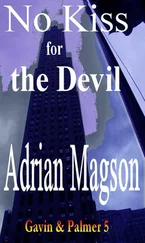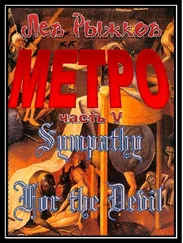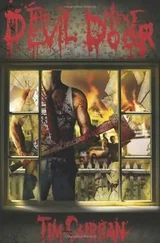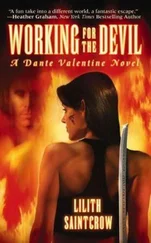“A sure-fire proposition.”
“Sure-fire? Very funny!” The man began to chuckle, then halted. “But we waste valuable time, Martin. Let’s get down to cases. What do you want from me?”
Martin took a deep breath. “I want to be able to stop Time.”
“Right now?”
“No. Not yet. And not for everybody. I realize that would be impossible, of course. But I want to be able to stop Time for myself. Just once, in the future. Whenever I get to a point where I know I’m happy and contented, that’s where I’d like to stop. So I can just keep on being happy forever.”
“That’s quite a proposition,” the Conductor mused. “I’ve got to admit I’ve never heard anything just like it before-and believe me, I’ve listened to some lulus in my day.” He grinned at Martin. “You’ve really been thinking about this, haven’t you?”
“For years,” Martin admitted. Then he coughed. “Well, what do you say?”
“It’s not impossible, in terms of your own subjective time-sense,” the Conductor murmured. “Yes, I think it could be arranged.”
“But I mean really to stop. Not for me just to imagine it.”
“I understand. And it can be done.”
“Then you’ll agree?”
“Why not? I promised you, didn’t I? Give me your hand.”
Martin hesitated. “Will it hurt very much? I mean, I don’t like the sight of blood, and-”
“Nonsense! You’ve been listening to a lot of poppycock. We already have made our bargain, my boy. I merely intend to put something into your hand. The ways and means of fulfilling your wish. After all, there’s no telling at just what moment you may decide to exercise the agreement, and I can’t drop everything and come running. So it’s better if you can regulate matters for yourself.”
“You’re going to give me a Time-stopper?”
“That’s the general idea. As soon as I can decide what would be practical.” The Conductor hesitated. “Ah, the very thing! Here, take my watch.”
He pulled it out of his vest-pocket; a railroad watch in a silver case. He opened the back and made a delicate adjustment; Martin tried to see just exactly what he was doing, but the fingers moved in a blinding blur.
“There we are.” The Conductor smiled. “It’s all set, now. When you finally decide where you’d like to call a halt, merely turn the stem in reverse and unwind the watch until it stops. When it stops, Time stops, for you. Simple enough?” And the Conductor dropped the watch into Martin’s hand.
The young man closed his fingers tightly around the case. “That’s all there is to it, eh?”
“Absolutely. But remember-you can stop the watch only once. So you’d better make sure that you’re satisfied with the moment you choose to prolong. I caution you in all fairness; make very certain of your choice.”
“I will.” Martin grinned. “And since you’ve been so fair about it, I’ll be fair, too. There’s one thing you seem to have forgotten. It doesn’t really matter what moment I choose. Because once I stop Time for myself, that means I stay where I am forever. I’ll never have to get any older. And if I don’t get any older, I’ll never die. And if I never die, then I’ll never have to take a ride on your train.”
The Conductor turned away. His shoulders shook convulsively, and he may have been crying. “And you said I was worse than a used-car salesman,” he gasped, in a strangled voice.
Then he wandered off into the fog, and the train-whistle gave an impatient shriek, and all at once it was moving swiftly down the track, rumbling out of sight in the darkness.
Martin stood there, blinking down at the silver watch in his hand. If it wasn’t that he could actually see it and feel it there, and if he couldn’t smell that peculiar odor, he might have thought he’d imagined the whole thing from start to finish-train, Conductor, bargain, and all.
But he had the watch, and he could recognize the scent left by the train as it departed, even though there aren’t many locomotives around that use sulphur and brimstone as fuel.
And he had no doubts about his bargain. That’s what came of thinking things through to a logical conclusion. Some fools would have settled for wealth, or power, or Kim Novak. Daddy might have sold out for a fifth of whiskey.
Martin knew that he’d made a better deal. Better? It was foolproof. All he needed to do now was choose his moment.
He put the watch in his pocket and started back down the railroad track. He hadn’t really had a destination in mind before, but he did now. He was going to find a moment of happiness…
Now young Martin wasn’t altogether a ninny. He realized perfectly well that happiness is a relative thing; there are conditions and degrees of contentment, and they vary with one’s lot in life. As a hobo, he was often satisfied with a warm handout, a double-length bench in the park, or a can of Sterno made in 1957 (a vintage year). Many a time he had reached a state of momentary bliss through such simple agencies, but he was aware that there were better things. Martin determined to seek them out.
Within two days he was in the great city of Chicago. Quite naturally, he drifted over to West Madison Street, and there he took steps to elevate his role in life. He became a city bum, a panhandler, a moocher. Within a week he had risen to the point where happiness was a meal in a regular one-arm luncheon joint, a two-bit flop on a real army cot in a real flophouse, and a full fifth of muscatel.
There was a night, after enjoying all three of these luxuries to the full, when Martin thought of unwinding his watch at the pinnacle of intoxication. But he also thought of the faces of the honest johns he’d braced for a handout today. Sure, they were squares, but they were prosperous. They wore good clothes, held good jobs, drove nice cars. And for them, happiness was even more ecstatic-they ate dinner in fine hotels, they slept on innerspring mattresses, they drank blended whiskey.
Squares or no, they had something there. Martin fingered his watch, put aside the temptation to hock it for another bottle of muscatel, and went to sleep determined to get himself a job and improve his happiness-quotient.
When he awoke he had a hangover, but the determination was still with him. Before the month was out Martin was working for a general contractor over on the South Side, at one of the big rehabilitation projects. He hated the grind, but the pay was good, and pretty soon he got himself a one-room apartment out on Blue Island Avenue. He was accustomed to eating in decent restaurants now, and he bought himself a comfortable bed, and every Saturday night he went down to the corner tavern. It was all very pleasant, but-
The foreman liked his work and promised him a raise in a month. If he waited around, the raise would mean that he could afford a second-hand car. With a car, he could even start picking up a girl for a date now and then. Other fellows on the job did, and they seemed pretty happy.
So Martin kept on working, and the raise came through and the car came through and pretty soon a couple of girls came through.
The first time it happened, he wanted to unwind his watch immediately. Until he got to thinking about what some of the older men always said. There was a guy named Charlie, for example, who worked alongside him on the hoist. “When you’re young and don’t know the score, maybe you get a kick out of running around with those pigs. But after a while, you want something better. A nice girl of your own. That’s the ticket.”
Martin felt he owed it to himself to find out. If he didn’t like it better, he could always go back to what he had.
Almost six months went by before Martin met Lillian Gillis. By that time he’d had another promotion and was working inside, in the office. They made him go to night school to learn how to do simple bookkeeping, but it meant another fifteen bucks extra a week, and it was nicer working indoors.
Читать дальше












